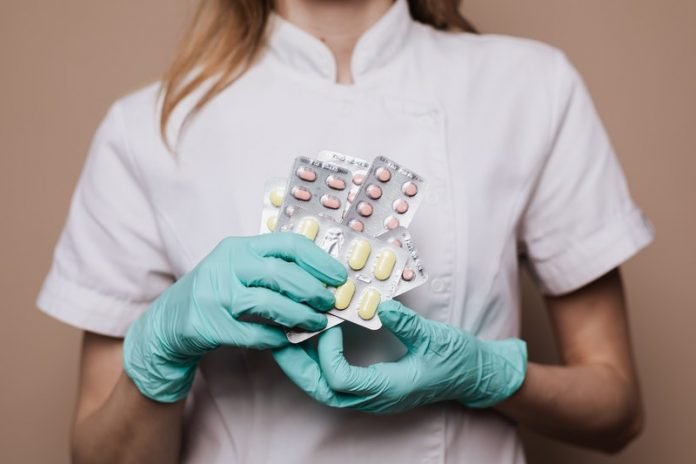
In a recent study published in Nature Cell Discovery, researchers developed two new drugs to both prevent SARS-CoV-2 infection, and also treat people who have been exposed to the virus so they do not develop severe disease.
The study is from QIMR Berghofer Medical Research Institute. One author is Professor Sudha Rao.
The new drugs are now being tested with promising early results showing they are not toxic and have few side effects.
The drugs are also stable and can be stored at room temperature—which would make them easy to distribute.
The first drug would be given pre-exposure to the virus and help boost the efficacy of vaccines, while the second drug would stop the spread of the virus in already infected cells.
The discovery of the drugs was made possible after the researchers uncovered a previously unknown mode of entry that SARS-CoV-2 exploits to invade cells and cause COVID-19 disease.
Laboratory tests show the first drug reduces infection by cloaking the ACE2 receptor protein on human cells. The SARS-CoV-2 spike protein uses the ACE2 receptor to bind to and invade cells.
The virus then latches onto the cloaking peptides, which they mistake for human cells—preventing infection.
The lab tests have also shown that if the virus finds its way into cells, the second drug can block how the virus hijacks the host cell and replicates. It also boosts the immune system’s ability to recognize the virus.
The team says they were able to develop the drugs after discovering that some people have a chemical tag that acts as a padlock on the ACE2 receptor.
These people will be less susceptible to SARS-CoV-2 and those without the tag are more vulnerable to infection
The researchers also discovered that if the virus invaded the cells it would unlock the tag from the inside—allowing more efficient virus replication.
They hope, if the clinical trials are successful, that the first drug could be given as a therapy alongside vaccination to prevent the virus from binding to cells and taking hold, while the second drug could be used to stop the virus from replicating in already-infected patients.
The research was conducted on COVID-19 patient blood and human cells.
If you care about COVID, please read studies about these 3 common antiviral drugs may effectively fight COVID-19 and findings of this existing drug may help against COVID-19.
For more information about COVID and your health, please see recent studies about this drug holds promise as at-home treatment for COVID-19 and results showing that painkiller drugs may boost or suppress COVID-19 depending on when you use them.
Copyright © 2021 Knowridge Science Report. All rights reserved.



